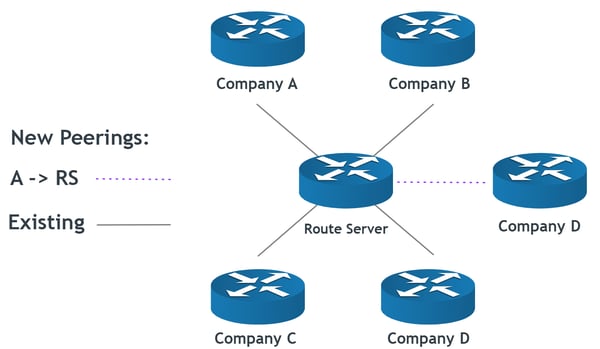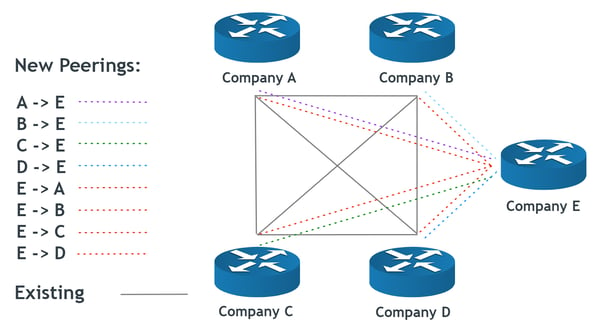|
Boston Internet Exchange |
We operate redundant route servers with an open peering policy on the Boston Internet Exchange (BOSIX). This enables customers to manage BGP only one peering relationship (two for redundancy), but receive routes from all other participants also peering with the route servers, without having to maintain individual peerings with them. This greatly simplifies management and ease of access to BOSIX. We do consider our route servers as a supplement to the BOSIX, however, and encourage participants to peer directly with one another where possible.
Each participant has their own unique peering requirements. Some are more difficult to peer with than others. Customers wishing to participate with others on the exchange have to engage each existing participant manually to work out the necessary requirements. Beyond complicated requirements that may vary between each participant, the administrative burden of setting up dozens of different BGP neighborships is a significant challenge. Not only must the new BOSIX member make changes to their equipment for each peer, but those peers have to make changes as well.
Company A wishes to join the BOSIX and peer with 4 different participants. That means that Company A must contact, understand, qualify for, and configure the BGP neighborships with 4 different companies, with each of those companies reciprocating. A total of 5 companies need to make changes to their equipment to support the onboarding of one single Customer A. 8 different peerings need to happen for the onboarding of a single customer with only 4 different peers! This can take months to accomplish. Now imagine what this is like with 80 different participants. Answer: 3,160 new peering relationships would need to be configured, represented by the formula n(n-1)/2.

Two route servers are provisioned for redundancy. While each BOSIX participant can optionally peer with each other, they could just peer with the route server and send all the routes they advertise there. New participants then peer only with each of the two route servers. There are no complicated agreements or ‘tests’ that they need to pass first, no individual arrangements to manage, no lengthy delays in manual configurations. Router configurations are generated automatically, drastically reducing complexity, cost, and administrative burden for all participants. Once a new participant has physical connectivity, receiving all routes from all providers now only takes minutes.

“With our growing use of the Internet, being able to peer directly with the likes of Netflix, Akamai, Microsoft and Apple on the Boston Internet Exchange has been huge for us. For a flat access fee for a 10 gigabit pipe, we avoided having to double our Internet bandwidth.”

